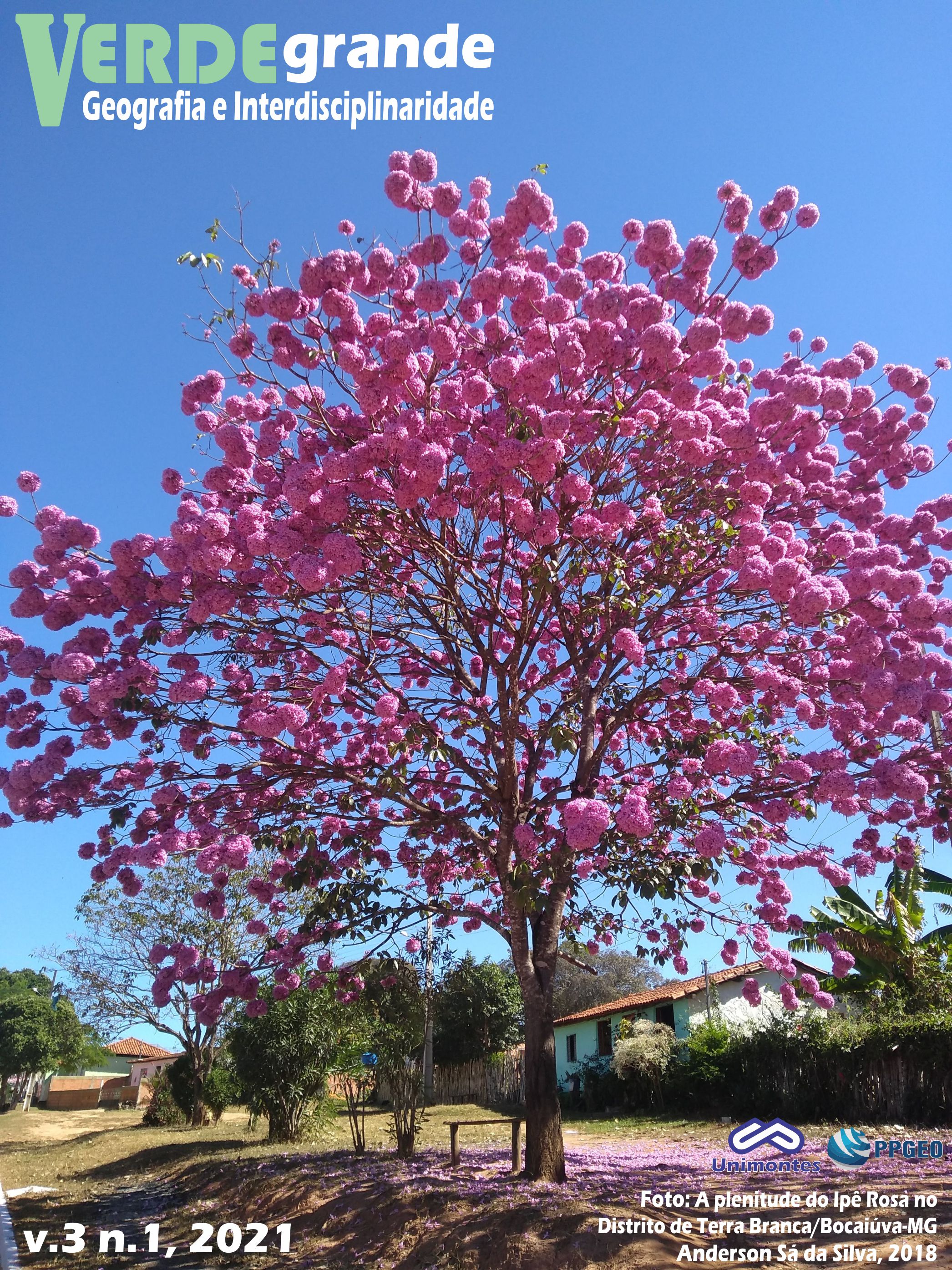WOMEN IN FARM: BRIEFING ABOUT LAND, LABOR, FAMILY, COLOR AND VALUE-DISSOCIATION IN SERRA DO CABRAL
DOI:
10.46551/rvg2675239520211124150Keywords:
Valor-Dissociação, Modernização, Norte de Minas GeraisAbstract
This essay analyzes, through the Marxist aegis of the theory of value-dissociation, proposed by Roswitha Scholz, the participation of a specific expropriated generation of women in territorialization of Serra do Cabral, in the northside of Minas Gerais state, throughout the 20th century. Expropriated both in the diamond mining and on the livestock farm, the basis of that process of occupation and regional formation, and the subsequent forestry, which has introduced modern working relationships on the way to open the region under the economic modernization speech. Supported by interviews and fields of research, this text presents the dissociation of value not restricted to the issue of gender, but also connected to color, due to the peripheral condition of a country of recent slave past. With this, the work exposes the northern hinterland of Minas Gerais as a particularity of the scope of modern capitalist sociability, since the 17th century, in the prelude to its territorialization, inhabited by historically immiscible women in the process of production, whether in the reproduction of the family, in the production of surplus, and the access to negative freedom.
Downloads
References
BALIBAR, Étienne. Le retour de la race. Mouvements, n. 50, p. 162-171, 2007. Disponível em: <https://www.cairn.info/revue-mouvements-2007-2-page-162.htm>. Acesso em: 1 fev. 2020.
BOLLE, Willi. Grandesertão.br: o romance de formação do Brasil. São Paulo: Editora 34, 2004.
BOLSANELLO, Maria Augusta. Darwinismo social, eugenia e racismo “científico”: sua repercussão na sociedade e na educação brasileiras. Educ. rev., Curitiba, n. 12, p. 153-165, Dec. 1996.
FEDERICI, Silvia. Calibã e a bruxa: mulheres, corpo e acumulação primitiva. São Paulo: Editora Elefante, 2004.
FREYRE, Gilberto. Casa-grande e senzala: formação da família brasileira sob o regime da economia patriarcal. São Paulo: Global, 2006.
GINZBURG, Carlo. O queijo e os vermes: o cotidiano e as ideias de um moleiro perseguido pela Inquisição. São Paulo: Companhia das Letras, 2006.
HARVEY, David. A produção capitalista do espaço. São Paulo: AnnaBlume, 2006.
HEIDEMANN, Heinz Dieter. Os migrantes e a crise da sociedade do trabalho: humilhação secundária, resistência e emancipação. In: Migrações: discriminação e alternativas. São Paulo: Paulinas, 2003, p. 25-40.
HOLANDA, Sérgio Buarque de. Raízes do Brasil. São Paulo: Companhia das Letras, 1995.
KRISIS, Grupo. Manifesto contra o trabalho. São Paulo: Coletivo Sabotagem, 1999.
KURZ, Robert. Fetichismo sexual: notas sobre a lógica de feminilidade e masculinidade. O Beco, 1992. Disponível em: . Acesso em: 24 jul. 2020.
LEITE, Ana Carolina Gonçalves. O campesinato no Vale do Jequitinhonha: da sua formação no processo de imposição do trabalho à crise da (sua) reprodução capitalista. Orientador: Heinz Dieter Heidemann. 2015. 785 p. Tese (Doutorado em Geografia Humana) – Faculdade de Filosofia, Letras e Ciências Humanas, Universidade de São Paulo, São Paulo, 2015.
MARTINS, José de Souza. O cativeiro da terra. São Paulo: Hucitec, 2004.
MARX, Karl. O Capital: crítica da economia política. São Paulo: Boitempo Editorial, 2013. 3 v.
MENEGATTI, Jéssica C. L. Mulher sem Valor: o pensamento de Roswitha Scholz para a crítica radical do capitalismo e das relações de gênero. Orientador: Tales Afonso Muzfeldt Ab’Sáber. 2016. 104 p. Dissertação (Mestrado em Filosofia) – Escola de Filosofia, Letras e Ciências Humanas, Universidade Federal de São Paulo, São Paulo, 2019.
MORLEY, Helena. Minha vida de menina. São Paulo: Companhia de Bolso, 2016.
OLIVEIRA, Francisco de. Elegia para uma re(li)gião: Sudene, Nordeste. Planejamentos e conflitos de classes. Rio de Janeiro: Paz e Terra, 1988.
PUNTONI, Pedro. A Guerra dos Bárbaros: povos indígenas e a colonização do sertão Nordeste do Brasil, 1650-1720. São Paulo: Hucitec; Edusp, 2002.
RIBEIRO, Darcy. O povo brasileiro: a formação e o sentido do Brasil. São Paulo: Global, 2015.
ROLIM, Leonardo Cândido. Projetos de colonização para os sertões do Norte no “Roteiro do Maranhão a Goiás pela Capitania do Piauí” (c. 1770-1790). In: SIMPÓSIO NACIONAL DE HISTÓRIA, 28., 2015, Florianópolis. Anais [...]. Florianópolis: Anpuh, jul. 2015. p. 1-9.
ROSA, João Guimarães. Grande sertão: veredas. Rio de Janeiro: Nova Fronteira, 1986.
SCHOLZ, Roswitha. O sexo do capitalismo: teorias feministas e metamorfose pós-moderna no patriarcado. O Beco, 2000. Disponível em: <http://www.obeco-online.org/roswitha_scholz6.htm>. Acesso em: 27 ago. 2019.
______. O valor é o homem. Teses sobre a socialização pelo valor e a relação entre os sexos. O Beco, 1992. Disponível em: <http://www.obeco-online.org/rst1.htm>. Acesso em: 2 jul. 2019.
SCHWARCZ, Lilia Moritz. O espetáculo das raças: cientistas, instituições e questão racial no Brasil – 1870-1930. São Paulo: Companhia das Letras, 1993.
SCHWARZ, Roberto. As ideias fora do lugar. In: Ao vencedor as batatas. São Paulo: Duas Cidades, 1992. p. 10-31.
SPIX, Johann Baptist von; MARTIUS, Carl Friedrich Philipp von. Viagem pelo Brasil: 1817-1820. Belo Horizonte: Itatiaia, 1981.
TOLEDO, Carlos de Almeida. A região das lavras baianas. Orientador: Heinz Dieter Heidemann. 2008. 246 p. Tese (Doutorado em Geografia Humana) – Faculdade de Filosofia, Letras e Ciências Humanas, Universidade de São Paulo, São Paulo, 2008.
VIANNA, Oliveira. Populações meridionais do Brasil. Brasília, DF: Edições do Senado Federal, v. 27, 2005.
Downloads
Published
How to Cite
Issue
Section
License
Copyright (c) 2021 Suelen Rosa Pelissaro

This work is licensed under a Creative Commons Attribution-NonCommercial-NoDerivatives 4.0 International License.
You are free to:
Share — copy and redistribute the material in any medium or format
The licensor cannot revoke these freedoms as long as you follow the license terms.
Under the following terms:
Attribution — You must give appropriate credit, provide a link to the license, and indicate if changes were made. You may do so in any reasonable manner, but not in any way that suggests the licensor endorses you or your use.
NonCommercial — You may not use the material for commercial purposes.
NoDerivatives — If you remix, transform, or build upon the material, you may not distribute the modified material.
No additional restrictions — You may not apply legal terms or technological measures that legally restrict others from doing anything the license permits.


















 Esta obra está licenciada com
Esta obra está licenciada com 